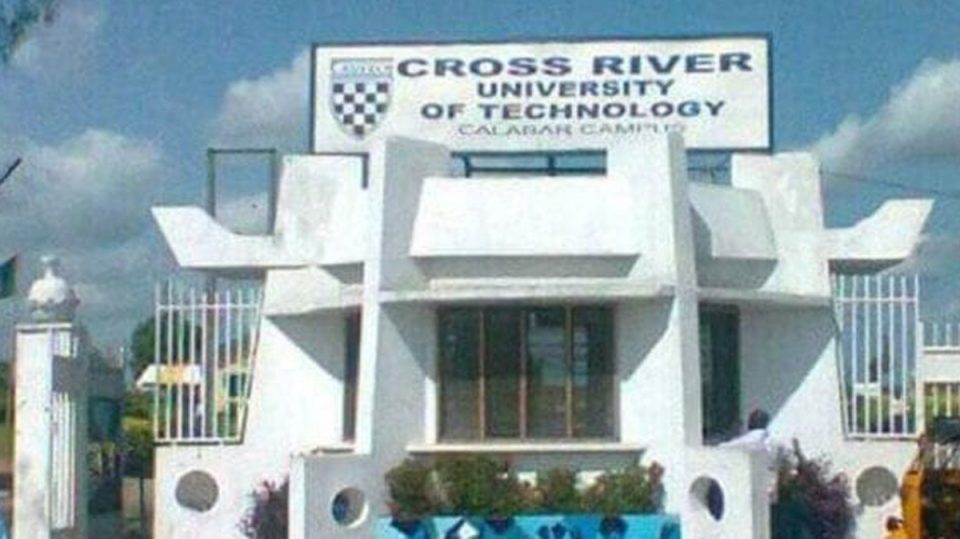Two students of Cross River University of Technology have emerged winners of the Science and Technology Innovation Challenge, organised by Nigeria Content Development and Monitoring Board (NCDMB) in partnership with Enactus Nigeria.
The duo of Victoria Effiong and Paul Agbor from the university emerged winners after defeating contestants from five other universities to win a trophy and N10 million cash prize on Tuesday.
This is the first edition of the challenge and six universities made it to the finals of the Nigerian Content Science and Technology Innovation Challenge (STIC).
The second position went to the University of His, with a cash prize of N4 million, while the University of Agriculture Makurdi came third with a cash prize of N1.5 million.
Tai Solarin University of Education, Anchor University, Lagos, Federal University of Technology, Owerri, went home with a plaque and cash prize of N100,000 each as consolation prizes.
Gov. Douye Diri of Bayelsa in his address explained that his administration was focusing on the development of skills acquisition through the establishment of colleges of science and technical education in every local government area of the state.
Diri said there was a real need to change the narrative on unemployment in the state in the light of an increasingly digitised global economy.
The governor noted that the state government had adopted an educational curriculum that has shifted emphasis from certificate education to science and technology-based skills as no society could develop beyond its level of education.
He called for collaboration with the NCDMB and other stakeholders to ensure that science and technology was given a premium in the educational sector.
He commended the NCDMB management and its partners for introducing the challenge to build the capacity of young Nigerians in science and technology.
He noted the programme was in line with the board’s mandate to bridge the technology and manpower needs in the oil and gas industry.
In his address, the NCDMB Executive Secretary, Mr Simbi Wabote, said the Nigerian Content Science, Technology and Innovation Challenge was one of its various interventions to serve as a catalyst for the industrialisation of the Nigerian oil and gas industry and allied sectors.
Wabote, explained that the STIC in partnership with Enactus Nigeria Limited was at the grand finale stage with over 170 public and private universities in Nigeria participating.
He said the programme was targeted at students of accredited tertiary institutions to apply science, technology and Innovation to finding homegrown solutions to everyday problems across all sectors of the economy.
The challenge, Wabote explained, was aimed at engaging, developing, showcasing, supporting and rewarding deserving students, lecturers and universities that excelled in the challenge.
The Country Director, Enactus Nigeria, Mr Michael Ajayi, described the challenge as a unique opportunity to create entrepreneurs while reducing the unemployment rate and supporting the economic advancement of the country.
He said in spite of that economic indices indicate that unemployment is growing at a dangerously alarming rate in Nigeria as it stands at 33 per cent and the report shows that it is second highest on the global list.
“However, Enactus Nigeria, believes that entrepreneurial development (inclusive of SMEs) is a tool that will drive innovation and encourage entrepreneurs to create new enterprises.
“Enactus Nigeria also believes that such entrepreneurial activities will also create wealth even at the bottom of the pyramid (BoP) and systematically reverse the growing unemployment rate and its unintended attendant socio-economic impact.
“We are very delighted at the successes recorded this far in the implementation of the science and technology challenges; and we look forward to a successful grand finale today.
“Our expectation is that at the end of the STIC, we would have created and facilitated sustainable youth-led entrepreneurial ventures that will accelerate reverse-innovation, provide job opportunities and create wealth,” he said.
NAN reports that after the official launch of the STIC on Nov. 19, 2020, a total of 1,022 undergraduates from 129 accredited and recognized Nigerian tertiary institutions created teams of two students each and submitted 511 home-grown solutions for screening/evaluation.




